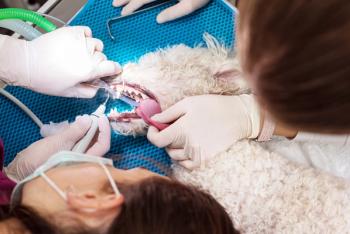
Past NAVTA president speaks up
Julie Legred, CVT, talks about the overwhelming need for veterinary technicians.
There are many career choices for the veterinary technician-and the number of opportunities is increasing every day. There's an overwhelming need for veterinary technicians as these opportunities rise, as the veterinary profession grows, and as the awareness of what veterinary technicians can do and the efficiency in the way they do it heightens. This for veterinary technicians increases job security, but on the same page, it doesn't ensure that our jobs won't be affected by the economy.
Earning potential is related to many different things. As stated above, there are increasing opportunities for veterinary technicians and with these are many different salary scales. Veterinary technicians usually graduate with a two-year degree and take a state exam and the Veterinary Technician National Exam (VTNE) to achieve the status of credentialed. It's becoming increasingly common for the veterinary technician to go beyond this education and pursue more advanced degrees (Bachelors and Masters) and/or achieve specialty status in one of the recognized academies by NAVTA (Internal Medicine, Anesthesia, Dental, Emergency and Critical Care, and Behavior).
The items mentioned will, of course, have an impact on higher salaries. We have to be realistic though, being a veterinary technician won't make you rich. Higher salaries are increasing, but certainly not a lot of veterinary technicians are making $70,000 (maybe about 5 percent).
I, for one, didn't pursue this profession to get rich. I wanted to make a difference in the quality of animals' lives. I've been a certified veterinary technician for 25 years and continue to love our profession. I think we're the luckiest people in the world to have such a great profession. I'm still amazed by all of the veterinary technicians that I've met in these 25 years who've made our profession what it is and have made such a difference in many animals' and all of our lives.
Julie Legred, CVT
2008 NAVTA President
Newsletter
From exam room tips to practice management insights, get trusted veterinary news delivered straight to your inbox—subscribe to dvm360.





